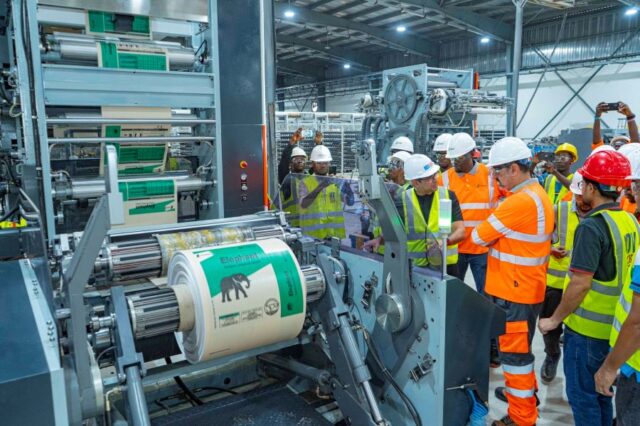
WED, JULY 05 2023-theGBJournal |The non-oil sector grew slower by 2.77% y/y relative to 4.44% y/y in Q4-22 – the lowest print since Q1-21 (+0.79% y/y), largely driven by the (i) cash crunch experienced in Q1-23, and (ii) lingering increase in production costs worsened by exchange rate pressures and elevated borrowing costs amid high domestic inflation.
Although the main drivers of the Non-oil sector’s growth were the ICT (+10.32% y/y vs Q4-22: +10.35% y/y) and finance & insurance (+21.37% y/y vs Q4-22: +11.61%y/y) sectors, we highlight that the slower growth in trade (+1.31% y/y vs Q4-22: +4.54% y/y), and manufacturing (1.61% y/y vs Q4-22: +2.83% y/y) combined with a decline in Agriculture (-0.90% y/y vs Q4-22: +2.05% y/y) GDP dragged the Non-oil sector overall performance in Q1-23.
Given that economic activities have normalised after the negative impact of cash scarcity in Q1-23, we revise our 2023 full-year estimate higher to 2.92% y/y (previously: +2.77% y/y).
Our forecast is also hinged on the sustained improvement in crude oil production and the absence of major shocks to the domestic economy amid the relatively positive sentiments surrounding the present administration.
Notwithstanding, we believe the following underlying factors will undermine the economy’s growth in 2023FY relative to 2022FY: (i) high production costs exacerbated by elevated borrowing costs, (ii) an increase in taxes in line with 2023 Fiscal Policy Measures (FPM), (iii) depressed demand supported by the highly inflationary environment, and (iv) initial impact of currency pressures given the FX market’s liberalisation.
Notably, we expect the Agriculture, trade, real estate and manufacturing sectors to bear the brunt of these impacts. Overall, we expect the economic growth to settle at 2.92% y/y in 2023FY (2022FY: +3.10% y/y).
Barring any significant shocks in the economy, our outlook on the non-oil sector for H2-23 is focused on the recovery in the informal sector from the cash shortages experienced in Q1-23.
In line with historical trends, we expect the Services sector to continue to support the overall non-oil sector’s growth,primarily supported by the immense contribution from the telecommunications
and financial services subsectors.
Simultaneously, we expect the manufacturing and Agriculture sectors to be hampered by elevated production costs and unfavourable climate conditions. Therefore, on a balance of factors, we expect non-oil GDP to grow by 2.45% y/y in 2023FY (2022FY: +4.84% y/y). Analysis is provided by Cordros Research.
Twitter-@theGBJournal|Facebook-the Government and Business Journal|email:gbj@govbusinessjournal.com| govandbusinessj@gmail.com









